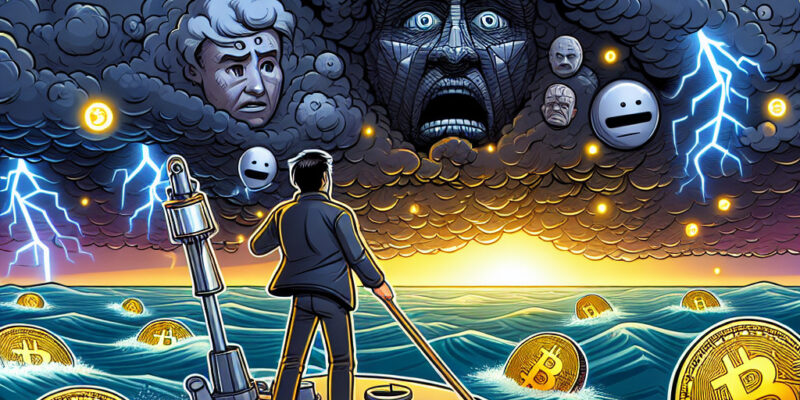$10M WLFI Boost: Justin Sun Battles Suspicious Token Scandal

In the ever-evolving landscape of blockchain and cryptocurrency, trust is both a vital and often elusive resource. Recently, the focus has turned to Justin Sun, a prominent figure in the crypto world, who is navigating the choppy waters of skepticism after a stir of controversy surrounding certain token transactions. To counteract this cloud of suspicion and reinstate trust among users, Sun revealed plans for a substantial investment of $10 million in WLFI.
At the heart of this intrigue is the complex web of blockchain transactions. These digital ledger entries are scrutinized by diligent blockchain trackers who flagged an unsettling pattern of token movements. The community, always vigilant and often skeptical, quickly raised eyebrows over these findings, leading to a swirl of speculation and concern. For Justin Sun, the founder of TRON and a well-known entrepreneur in blockchain circles, the stakes are heightened as he seeks to reassure his followers and the broader crypto community.
Sun’s pledge to inject $10 million into WLFI represents a strategic move to quell doubts and demonstrate his commitment to transparency and stability. But why WLFI? This token is part of a burgeoning ecosystem in the decentralized finance (DeFi) space, promising not just innovation but also lucrative returns for its investors. The DeFi sector has been a hotbed of activity, with its decentralized nature appealing to those wary of traditional financial systems. Yet, it is this very decentralization that can sometimes lead to unease, as the lines between legitimate and dubious activities can blur.
Investing in WLFI serves a dual purpose for Sun. It not only showcases a tangible commitment to the token but also aims to stabilize its value by fostering increased liquidity and trust. Such moves can boost investor confidence, which is crucial in an environment where digital assets can experience extreme volatility. Sun’s approach seems to aim at being proactive rather than reactive—a vital strategy as the community grapples with concerns over credibility.
In the broader picture, Justin Sun’s saga is not unique. The cryptocurrency world is rife with stories of dramatic rises and falls, scandals and redemption arcs. One can recall events like the Mt. Gox collapse or the more recent FTX debacle, where trust was shattered, leading to significant market tremors. Sun’s situation, although distinct, follows this well-trodden path where perception can shift markets almost as fast as reality itself.
By committing funds to WLFI, Justin Sun appears to be betting on the power of persuasion through visible action. However, the crypto community is known for its discerning nature. Outcries of skepticism and support can often be heard in equal measure within blockchain forums and social media discussions. For Sun, this investment is not just about money but about repairing his image amidst a sea of scrutinizing gazes.
As Sun navigates this challenging period, the outcome remains to be seen. Will the $10 million infusion indeed pacify the skeptics and steady the proverbial ship, or will it spark further debates about intentions and transparency? What remains clear is that the cryptocurrency landscape continues to be an intriguing and unpredictable theater where actions, intentions, and interpretations intersect in unexpected ways.
In this world of digital innovation, one thing remains constant—the need for dialogue and vigilance. Justin Sun’s latest move is a reminder of the delicate balance between risk and trust in the world of cryptocurrency, where each twist adds a new layer to an already complex narrative. As we observe this unfolding story, it prompts reflection on the broader implications for the future of decentralized finance and the inevitable challenges that lie ahead.













